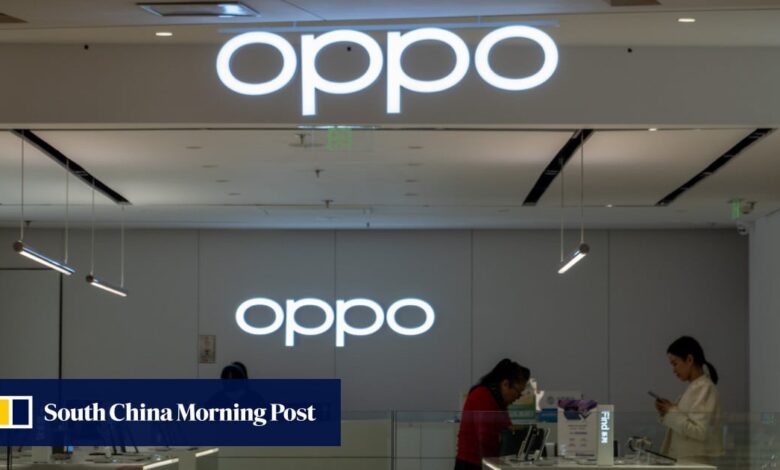Chinese smartphone brand Oppo to roll out AI functions to 50 million users by year’s end

Chinese smartphone brand Oppo plans to roll out generative artificial intelligence (AI) functions across all its product lines, from premium to affordable models, signalling its intention to be one of the most aggressive handset makers to embrace the AI wave.
As AI moves from a selling point to a must-have for smartphones, the Guangdong-based company wants to make generative AI – the technology behind intelligent chatbots such as OpenAI’s ChatGPT – accessible to consumers, according to a company executive.
“We are living in an AI era and smartphones are the most important personal AI devices,” Nicole Zhang, general manager of AI products at Oppo, said during a live-streamed online event on Monday.
Zhang said the company expects to offer generative AI features to around 50 million of its smartphone users by the end of this year. “We’re democratising [AI phones] for the first time in the industry,” Zhang said, adding that Oppo will not only add generative AI to its flagship Find series of handsets, but will also incorporate the technology in its more affordable Reno, F and A series.
Oppo’s push into the AI smartphone arena comes as Chinese Android brands have been racing to bake AI capabilities into their handsets to capitalise on growing consumer interest in the segment.
China is expected to lead the world in the adoption of AI-powered handsets, with the segment representing 12 per cent of total smartphone shipments on the mainland this year, ahead of the global average adoption rate of 9 per cent, according to an April report by consultancy Canalys.
Generative AI phones represent an important opportunity for smartphone makers to stand out and profit in the market, according to Canalys analyst Lucas Zhong. “Vendors are actively engaging consumers by developing interesting AI use cases and integrating AI features into their devices, which will [enhance] consumer awareness and adoption [and] feed into a sustainable monetisation model,” Zhong said.
Oppo’s Zhang told the Monday event that while it is costly to develop AI capabilities in-house, for the time being the company expects to offer generative AI to as many users as possible for free, although it did not rule out charging for the functions in future.
“Even if we’re going to charge for some of the AI features, we will make sure that the functions are worth the bill,” she said.



